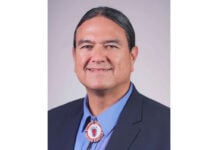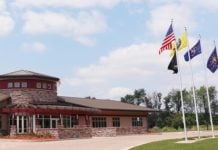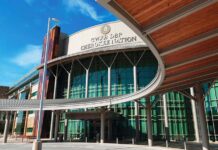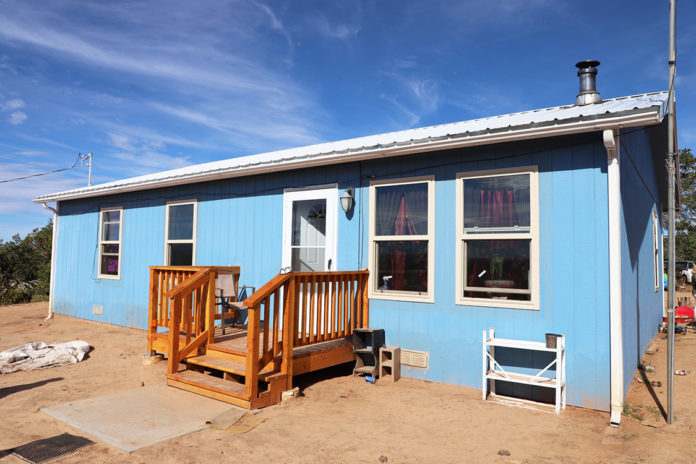WINDOW ROCK, AZ – Following years of policy reviews and changes, the Navajo Veterans Administration is moving forward with repairs and improvements to 125 homes that were constructed for Navajo veterans between 2014 and 2017. On Oct. 18, the Navajo Veterans Administration, working in partnership with a Navajo contractor, will break ground on the first new home for a Navajo veteran in recent years.
In 2017, the Navajo Nation Office of the Auditor General conducted an audit of the Navajo Veteran Housing Program. The findings indicated that several veteran homes were not in livable and safe conditions. An inspection of randomly completed homes concluded that the homes did not meet safety and quality standards. The homes were constructed by a different contractor.
“Under the leadership of Navajo Veterans Administration Executive Director James Zwierlein, our administration is addressing and fixing the deficiencies that were identified during previous years,” said President Nez. “We took the initiative to identify funds, resources, and a licensed construction contractor to remediate the homes for our Navajo warriors. It was a very challenging task to change the housing policies that were needed to reach this point and move the program forward. Our veterans deserve to live in a safe and quality-built home. Their service and contributions are immeasurable, and we will continue to support and pray for them.”
According to Zwierlein, each of 125 homes have been inspected and are in the process of being repaired – each home takes approximately two weeks to complete repairs. The licensed contractor completed six home repairs within one month.
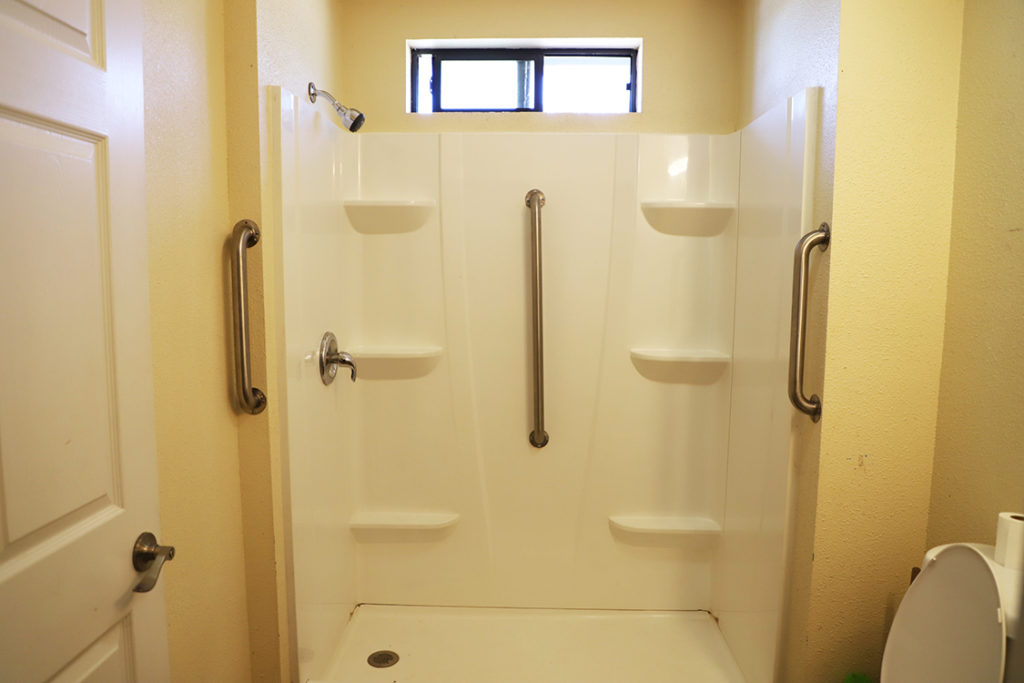
“Our goal is to make sure that all 125 veteran homes are safe and all deficiencies are replaced with high-quality materials,” said Zwierlein. “Under the guidance and direction of the administration and the Veterans Advisory Council, we have made tremendous improvements to provide direct services and resources for Navajo veterans. Additionally, the Navajo Nation Veterans Administration continues to complete home improvements for other veteran homes that were not constructed through the department.”
Regarding the Veterans Housing Program, the Navajo Veterans Administration successfully advocated for changes to the Veterans Housing Program policies that were needed to advance the program. The necessary amendments to the veterans housing policy were approved by the Health, Education, and Human Services Committee to allow the construction of new homes to move forward.
Zweirlein provided a report to the 24th Navajo Nation Council’s Naabik’íyáti’ Committee and answered questions from the Council members. He reported that on Oct. 18, the program will break ground on a new home for a Navajo veteran who was selected based on requirements and a site visit to the location of the home. Upon complete staffing of the housing program, the Navajo Veterans Administration will be able to construct more homes.
“I am very thankful to our Navajo veterans, our warriors, who continue to bring forth their concerns and recommendations to leadership,” said Vice President Lizer. “The Veterans Housing Program received approval from the Health, Education, and Human Services Committee to move the program forward to begin building homes for veterans. The next step is to fill the positions needed to provide the personnel and workforce to construct the homes. The Navajo Veterans Administration has a prototype of a home that is nearly complete, which serves as a model for veterans to see firsthand.”


































